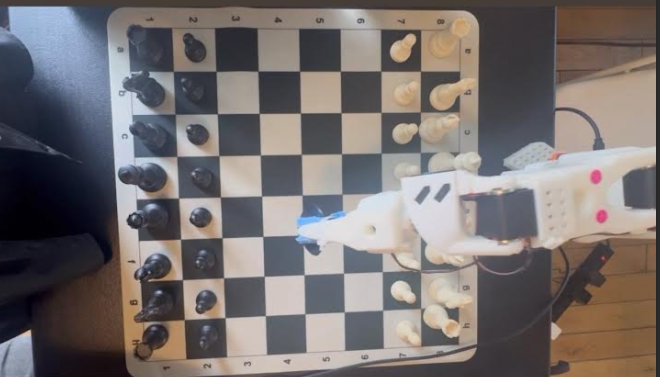What Edge Esmeralda Taught Me About Exploration
Reflections on the Edge City Fellowship.
July 17, 2025
This is a guest post by Minh (Anh) Nguyen, shared here with permission. The views are Anh's own and do not necessarily reflect the views of Edge City. Read more Edge City Fellowship reflections from Ivy, Janet, Yogya, and Jason.
---
Introduction
I’m Anh, an adventurer, systems tinkerer, and an incoming junior at the University of Toronto studying Computer Science and Statistics. Some technologies I use on a daily basis include Python, Pytorch, Typescript, React and Rust. At the fellowship, I’ll be building a secure, decentralized messaging and wallet app for Vietnamese users using the Matrix protocol. It’ll feature encryption, decentralized identity, and zk proof enabled payments to counter political disinformation and reduce reliance on U.S. platforms.
Originally from Vietnam, I moved to Canada two years ago for university. My previous work spans several AI startups, including stealth-mode ventures, a video game studio, and a government AI startup. After growing bored with wrapper building and LLM ops, I pivoted into robotics. I taught myself some simple projects with a Raspberry Pi kit at the start of this year and eventually co-building a 5 foot tall two wheeled robot, BracketBot, capable of autonomous package pickup and elevator navigation at a hackathon. That experience sparked a deep curiosity for systems where intelligence is physically grounded, particularly in emotionally aware and socially resilient robotics.
Lately, I’m independently studying stochastic processes and frontend — building out a website for a music startup right now. I also spend time developing a fundraising initiative for homeless children in Vietnam and a mentorship network for underserved students in India, as well as founded and hosting a coworking space for students in Toronto, called Meraki [@meraki_uoft on ig :)]
As you can probably tell, my interests are wide-ranging, I love diving deep into anything that sparks my curiosity, whether it's robotics, security, frontend design, or philosophy. At Edge, I’m hoping to channel that curiosity into a focused exploration, identifying a domain where I can go deep, push technical boundaries, and build something truly cutting-edge, to which I have never done before.
In my spare time I love pottery works, hiking, reading, specifically into philosophy and writers like Sartre, Dostoevsky and Nietszche. I’m a big reader, I have a section in my personal website where I review books as well. I also cook a lot, mostly asian cuisine. I’ve been super into cold plunges recently and am training for a marathon this year :)
Central learning question: how can we design emotionally intelligent, privacy preserving systems that are both computationally efficient and socially aligned in low-trust, low-resource environments?
The Fellowship at Edge Esmeralda
I came to Edge Esmeralda quite a bit unsure if I was on the right path and unclear what I wanted to build.
At the time, I was deep in a Computer Science and Statistics degree at the University of Toronto in Canada; my days were mostly spent either working on coding projects or grinding out math proofs, vaguely orbiting the idea of working in robotics. I recently started exploring robotics this year at a hackathon with my friend where we built an elevator delivery robot.
But I wasn’t sure. Robotics was one of several subjects I found compelling, but I hadn’t yet committed or know if that’s something I want to do consistently as I try to find a subject to stay consistent with.. I came to Edge because I wanted to explore that question more deeply, to figure out whether I should double down on building intelligent hardware, or let myself be pulled toward something else entirely.
Initially, I didn’t even have any tools to build with as it was a small village in Healdsburg, hence hardware resources were limited to obtain. I thought of using e-waste at first but there was none either. But then I met Vitaly Bulatov at a session where he brought in a humanoid robot (which was my first time seeing one!). He had experience helping provide me with the hugging face robotic arm kit from his hackathon to make a functioning robotic arm that plays chess. Note: I cannot play chess and realized from my friend when I was recording this video I made an illegal chess move (oopsies).

Around the same time, I met Neha, who was working on a startup building synthetic derivatives to hedge the cost of on demand GPU compute, randomly approached her at the coworking session and we had a walk. I had never thought deeply about speculation markets for compute cycles, but after a few conversations, I found myself down a rabbit hole of decentralized GPU futures, AI model latency, and pricing mechanisms. I’m still actively exploring that space.
Embracing Serendipity
My days at Edge followed a strange but energizing rhythm: wake up, take a morning walk into a session or two I find interesting, spend hours in the coworking space, and eventually end up in a sauna or cold plunge, talking with strangers who didn’t feel like strangers for long. One of the moments that stayed with me was when all the fellows gathered to have a meal sponsored by a generous participant of edge, and it was great to reconnect with people working on different things from AI policy to neurotech.
I think what surprised me most about myself was realizing I’m more of a generalist than I thought. I used to feel anxious about not being “all-in” on one idea. But at Edge, I saw how being a generalist wasn’t just tolerated, it was an asset. It meant I could talk to the robotics folks and the AI infrastructure people and the on-chain quant builders and actually find something in common or an interesting point to learn from, as I try to slowly embrace this side of mine.
To anyone thinking about applying next year, I’d say this:
- Don’t expect it to be just about your project. In fact, try to let go of any rigid expectation.
- Say yes to conversations that feel out of your league. Talk to people even if they aren’t in your field!
- Host a session, even if you think no one will show up. For example, I hosted one on robotics and ended up meeting someone who had worked on the early days of Waymo to which we had a really good conversation.
- Bring instant noodles.
- Spend time in the saunas and try out cold plunging early on.
Most of all, be open to shifting your interests, to unplanned conversations, to the idea that the person sitting across from you might change the direction of your work, or at least how you think about it.
---
This is a guest post by Minh (Anh) Nguyen, shared here with permission. The views are Anh's own and do not necessarily reflect the views of Edge City. Read more Edge City Fellowship reflections from Ivy, Janet, Yogya, and Jason.

